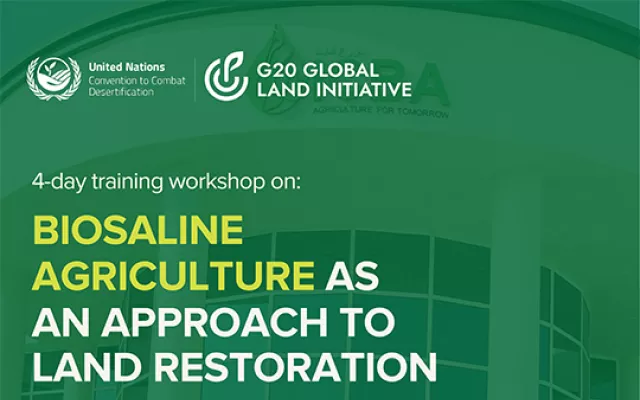Towards Sustainable Food Production for Marginal Lands in Aral and Caspian Sea Basins
The Aralo-Caspian lowlands, a prime example of marginal and saline environments, face serious threats to sustaining the ever-growing population as well as the local farmer groups. Water scarcity and variable climatic conditions have resulted in the use of low-quality, mineralized water for irrigation. This in turn has adversely affected agricultural output further threatening the fragile balance, given that most of the commonly cultivated crops like cotton, wheat, and corn are sensitive to salinity. Identifying drought- and heat-tolerant as well as water-use efficient alternative crops is therefore imperative for improving agricultural production and sustaining the livelihood of farmers and agropastoralists – especially those dependent on marginal quality land and water resources.
Improve tрe livelihoodы of farmers and agropastoralists - especially those dependent on marginal land and water resources - in the Aral and Caspian Sea basins through identifying and introducing new resilient forage and crop production and management systems that are adapted to the local environments and are appropriate for the socioeconomic and changing environmental conditions of the region. This will contribute to bringing back and increasing the productivity of the degraded and lost lands in the region and positively contribute to the food and nutrition security of local communities living in these marginalized areas.
- Karakalpakstan Branch of Tashkent Agrarian University, Nukus, Karakalpakstan
- Nukus Experimental Forestry Station, Republic Scientific and Production Center of Decorative Horticulture and Forestry
- Karakalpakstan Branch of Rice Institute, Uzbek Scientific Production Center on Agriculture, Ministry of Agriculture and Water Resources of the Republic of Uzbekistan
- Uzbek Institute of Karakul Sheep Breeding and Desert Ecology
- Uzbek Institute of Chemistry of Plant Substances, Academy of Sciences of the Republic of Uzbekistan
- Institute of Botany, National Academy of Azerbaijan
- Eurasian Food Security Center (EFSC), Moscow State University, Russia
- Soil Dokuchaev Institute, Academy of Agricultural Sciences of Russian Federation
- Plant Physiology Institute, Academy of Sciences of Russian Federation
- AVRDC - The World Vegetable Center, Regional Office for Central Asia and the Caucasus










